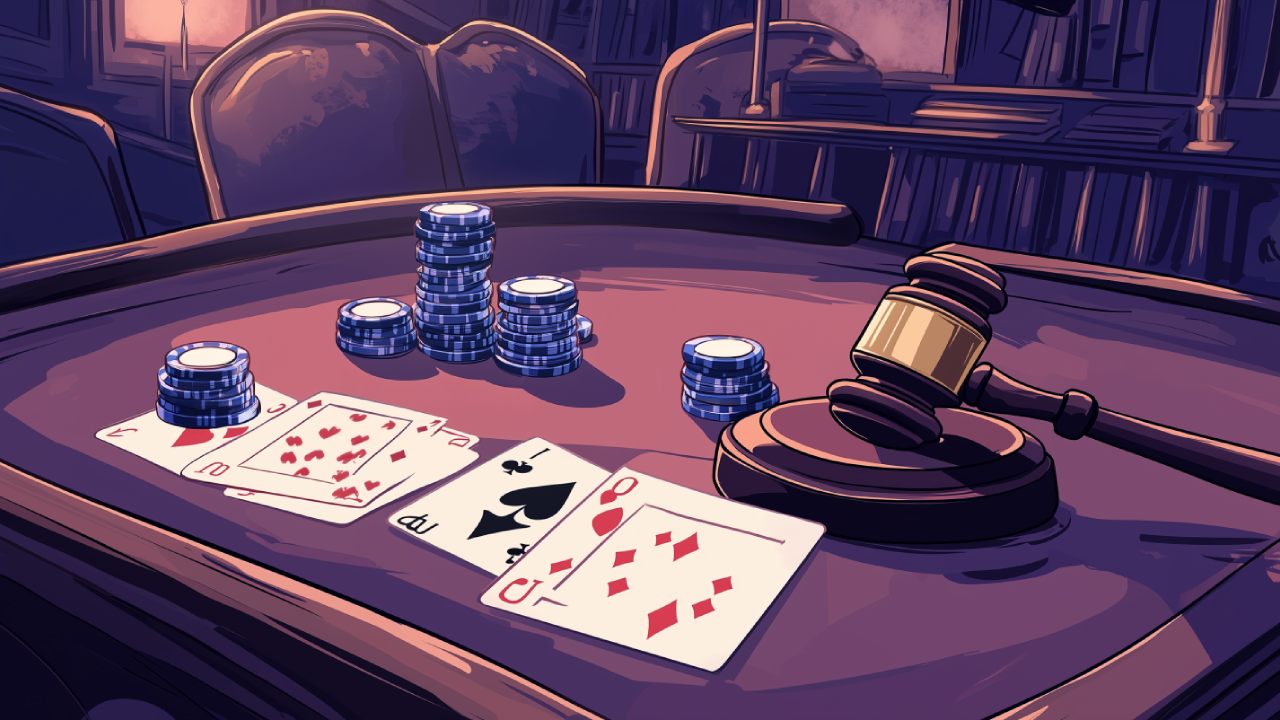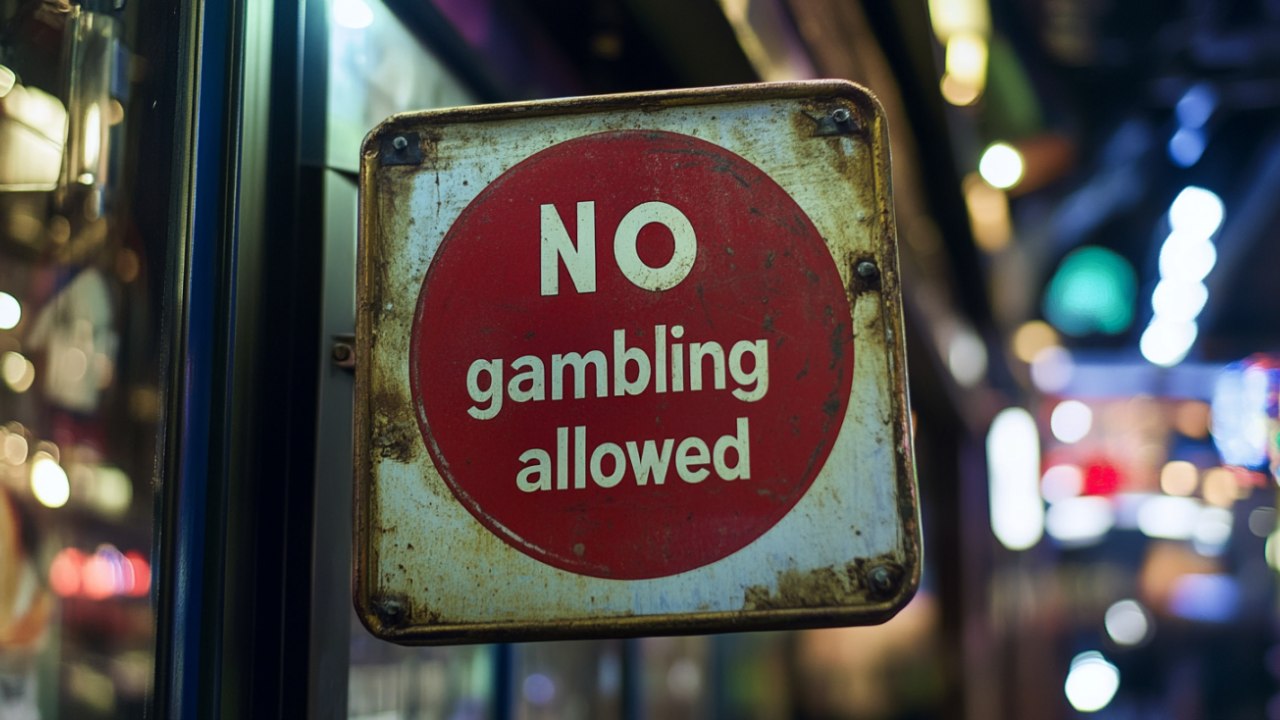Opinion: The Hidden Compliance Gap in Sweepstakes Casinos

Content Writer
Last updated
22 August 2025



Introduction
Sweepstakes casinos – online platforms offering slots and casino-style games under the premise of “no purchase necessary” – have quietly grown into a massive and largely unregulated industry in the U.S. Legal in 48 states, they operate without traditional gaming licenses by sidestepping the definition of gambling through a dual-currency system and free-entry options [1].
It’s nothing but an ingenious legal workaround, built on court precedents and marketing innovation. But that very agility may now be exposing a fundamental weakness: the Terms of Service (TOS) underpinning these platforms are often vague, inconsistent, or legally fragile – and that leaves both players and platforms at risk.
A Loophole-Fuelled Industry Operating on Self-Written Rules
Unlike licensed casinos in states like Pennsylvania or New Jersey, sweepstakes casinos face little formal regulatory oversight [2]. Instead of applying for gaming licenses or complying with jurisdiction-specific rules, they create their own rulebooks – the Terms of Service.
These TOS documents act as legal shields: defining what the games are, how players interact with them, and how disputes are handled. And in theory, they’re the only thing standing between a fun sweepstakes promotion and what some regulators would call an illegal lottery.
The core legality of the model rests on the availability of a truly free entry option. It’s what allows these platforms to operate across U.S. states where real-money gambling is banned.
Most offer free sweeps coins through mail-in entries or log-in bonuses – fulfilling the letter of the law. But regulators in states like Arizona have emphasized that “free” must mean accessible, equitable, and as frictionless as any paid path to play [3].
If free entry is buried in legalese, limited to obscure hours, or functionally discouraged, it may no longer pass muster – and the operator’s whole legal foundation starts to look shaky.
The Problem With the Small Print
Here’s where I see it get risky: sweeps casinos often lean too heavily on vague, overly broad TOS that aren’t designed to withstand legal scrutiny. In some cases, key information about how to redeem prizes or how disputes are handled is scattered across multiple documents – the main TOS, promotional rules, help center pages. This can create conflicting terms that make enforcement murky.
In one notable Supreme Court case unrelated to sweepstakes, an arbitration clause was struck down because it clashed with rules stated elsewhere in the agreement [4]. Sweepstakes platforms that update their terms on the fly – even while a player is participating in an ongoing promotion – may be doing the same without realizing it.
This matters because TOS in sweepstakes casinos aren’t just about user permissions. They’re pretty much the contract that defines whether the site is even operating legally. A confusing or inaccessible mail-in option, a lack of clarity about odds, or an ambiguous definition of what constitutes “cheating” can all be grounds for regulatory intervention – or worse, civil litigation.
And the Lawsuits Are Already Here
This isn’t a theoretical risk. At least a dozen lawsuits have already been filed against major sweepstakes-style gaming platforms in U.S. courts. Plaintiffs argue breach of contract, deceptive practices, and – increasingly – illegal gambling [5].
In many cases, it’s the TOS itself that’s under attack. Did the casino define eligibility clearly? Did it apply its rules consistently? Did it deny redemptions unfairly? These questions are being decided in courtrooms right now.
What’s even more concerning is the growing trend of regulators themselves stepping in. In 2023, Michigan’s gaming control board and Maryland’s attorney general both issued cease-and-desist orders to sweepstakes platforms operating without licensure in their states [6][7].
West Virginia’s AG served subpoenas to multiple operators as part of a broader investigation into their legal footing [8]. These aren’t fringe issues anymore – the state is getting involved, and operators relying on vague or conflicting terms may find that “this isn’t gambling” isn’t a strong enough defense.
My Opinion: Terms of Service Can’t Be the Industry’s Only Safety Net
Here’s where I’ll be blunt: for an industry this big, relying on self-written TOS to define your legality is reckless. These platforms need to treat TOS not as a formality but as the core of their legal architecture. Because if your entire business hinges on a “not gambling” defense – and the terms that defense is built on don’t hold up – then you’re not running a business. You’re building on sand.
This doesn’t mean overlawyering every clause. It means being transparent, consistent, and consumer-focused in how terms are written and enforced. Operators should take cues from regulated industries: clear language, posted odds, accessible free-entry methods, and airtight dispute processes. That’s not a burden – it’s the price of legitimacy.
What Comes Next?
It’s time for serious housekeeping. Here’s what the industry should prioritize immediately:
- Transparency First: Free play options, eligibility rules, prize redemption procedures – all of it should be upfront and plain-English. If it looks like a trick, regulators and courts will treat it as one.
- Unify the Documents: TOS, sweepstakes rules, and bonus terms must be aligned. If a user reads three documents and gets three different answers, that’s a compliance failure.
- Audit Your Arbitration Clauses: Courts are increasingly skeptical of mandatory arbitration and class-action bans unless they’re crystal clear and fairly applied [4]. If your platform uses one, make sure it’s enforceable.
- Anticipate Regulation: State-level oversight is coming. Platforms that take the lead in formalizing internal compliance now – rather than waiting for subpoenas – will be the ones that survive and grow.
Conclusion
Sweepstakes casinos may be innovative, but innovation doesn’t and shouldn’t excuse legal laziness. The TOS these platforms rely on were never meant to carry the full legal weight of an industry that’s inching closer to billion-dollar valuations.
And yet, they’re still being treated like side documents – buried in footers, cobbled together by marketing teams, ignored by users and sometimes by the companies themselves.
The truth is, if you’re running what looks, sounds, and feels like a casino, then you’re going to be held to casino-like standards, whether the law says so yet or not. And that starts with how you write your rules. Because once regulators or courts decide your fine print isn’t good enough, no sweepstakes entry in the world is going to save you.
📚 Sources
- SCCG Management. (2023). Where Are Sweepstakes Casinos Legal? Link
- Campbell, D. A. (2012). The curious case of convenience casinos: How internet sweepstakes cafes survive in a gray area between unlawful gambling and legitimate business promotions. John Marshall Journal of Computer & Information Law, 29(4), 594–615. Link
- Arizona Department of Gaming. (n.d.). Sweepstakes in Arizona. Link
- Lexology. (2021). Right to Arbitration, Maybe Not. Link
- Wallach, D. (2025, February 24). Legality in doubt, sweepstakes casinos could be targeted by state attorneys general. Forbes. Link
- Michigan Gaming Control Board. (2024, January 18). MGCB sends cease-and-desist letters to unlicensed online gaming operators. Link
- Wallach, D. (2025, March 17). Sweepstakes Casino Giant VGW Ordered To Exit Maryland, Produce Legal Opinion To Regulators. Forbes. Link
- iGaming Business. (2025, February 7). West Virginia AG serves subpoenas to sweepstakes operators. Link



